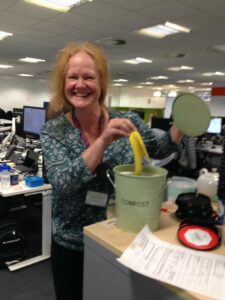Career story: Sarah Kissack

Sarah Kissack is the Joint Head of Housing Analysis at the Department for Work and Pensions (DWP)
Background and entry into analysis
I feel so lucky that I could study economics at my state comprehensive school – right from the start I loved learning ways of thinking about the issue of unlimited wants but limited resources. I went on to get a degree in Philosophy, Politics and Economics, and then applied to become a provisional economist at the then Department of Social Security. This gave me the opportunity to continue my interest in welfare issues. I had previously rejected the idea of the Civil Service and the Fast Stream because of the stuffy image of men in bowler hats and pin stripe suits, which turned out to be yet another inaccurate stereotype.
Why did you choose a career in analysis?
I have found being an analyst in government to be a brilliant way of being able to work on important and interesting issues with a wide range of people. My first role was on setting up the Child Support Agency when the principle had cross-party agreement, but then in practice proved extremely controversial. Taking a holistic view of how government decisions affect people’s lives, as well as modelling the impact on their incomes, is something I am still doing now that I am Joint Head of Housing Analysis at DWP.
In between I have:
- worked on a variety of employment and equality issues – including in the Cabinet Office and Child Poverty Unit
- been sponsored to do a master’s degree in economics
- worked 3 days a week since returning from maternity leave over 20 years ago – both in standalone roles and with a variety of wonderful jobshare partners from a variety of professions
What has been your career highlight so far?
A recent career highlight was working with analytical, policy, legal and operational colleagues to find a way of delivering a £20 weekly uplift in Housing Benefit as well as in Universal Credit. This was part of the coronavirus (COVID-19) welfare support package.
I am also proud of having contributed to widening the routes into the Government Economic Service through helping to set up the Degree Apprenticeship Programme.
Do you have any advice for colleagues who may be considering a career in analysis?
If you are curious about working in analysis, I recommend you have a look at the range of options for joining the Government Analysis Function. Whether you are coming from school, university or as a career change, your interest will be welcomed. Information and advice on the selection processes is available to help you prepare. Success will give you a great variety of opportunities to use your analytical curiosity to learn, develop and make a difference.
